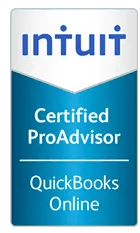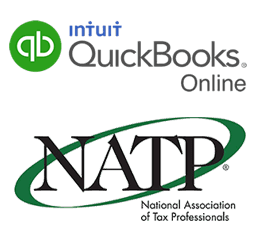"Dirty Dozen" Tax Scams
Renee Daggett • October 20, 2021

Each year, the IRS unveils its list of scams that target unsuspecting taxpayers.
Below are five of the most common tax scams impacting taxpayers today
, as well as tips to not become a victim:
- Fake Charities are created to exploit natural disasters and other situations such as the current Covid-19 pandemic. Criminals set up fake charities and solicit donations by telephone, text, social media, or email. The fake charity might have a familiar-sounding name, tricking the taxpayer into thinking they are donating to a reputable charity. When requested, legitimate charities will provide their Employer Identification Number (EIN), which can be used to verify their legitimacy by using the IRS search tool .
- Immigrant/Senior Fraud scammers target groups with limited English knowledge as well as senior citizens. The taxpayer may receive a threatening phone call from someone pretending to be an IRS representative. The caller might threaten jail time, loss of driver license, or deportation if their demands aren’t met. The first contact that the IRS makes with a taxpayer will typically be through the mail – they will not initiate communication by phone. Legitimate IRS employees will never use scare tactics such as threatening to revoke licenses or have a person deported.
- Offer in Compromise solicitations —an Offer in Compromise (OIC) is an agreement between the taxpayer and the IRS to resolve a taxpayer’s tax debt. Taxpayers should be wary of misleading claims that a company can settle tax debt for “pennies on the dollar” or that they can secure larger offer settlements, which often cost the taxpayer thousands of dollars to secure. Taxpayers should first check if they qualify for an OIC by using the IRS online pre-qualifier tool .
- “Ghost” Tax Return Preparers will prepare a taxpayer’s return but refuse to sign the return as the paid preparer. Not signing a return is a red flag that the preparer may be looking for a quick profit by promising a big refund or charging fees based on the size of the refund. A “ghost” preparer may require payment in cash only, make up income to qualify the client for a tax credit, claim fake deductions to increase the size of the refund, or list their own bank account instead of the taxpayer’s for direct deposit of refunds. Avoid falling victim to an unscrupulous tax preparer by choosing your preparer wisely and reviewing their credentials and qualifications carefully.
- Unemployment Insurance Fraud typically involves individuals obtaining state or local assistance that they are not entitled to, often by coordinating with or against employers and financial institutions. This can entail multiple types of fraud, including identity-related fraud, employer-employee collusion fraud, misrepresentation of income fraud, and more. There are a number of financial red flags to indicate unemployment fraud, including (but not limited to):
- Unemployment payments coming from a state other than the state where the customer supposedly resides/previously worked;
- Multiple unemployment payments made within the same disbursement window;
- Unemployment payments being made in the name of someone other than the account holder;
- A higher amount of unemployment payments in the same timeframe compared to other similar customers
Please see the IRS Dirty Dozen List on the IRS website for additional information.

The recent wildfires in Los Angeles County have devastated communities, leaving thousands dealing with property loss, displacement, and financial uncertainty. In response, both the IRS and the State of California have granted tax deadline extensions and financial relief to help individuals and businesses recover.

The new year is here, and with it comes an important deadline for business owners: January 31, 2025. If you’ve paid independent contractors, service providers, or freelancers $600 or more in 2024, you may need to file a 1099 form for them. With the deadline just weeks away, now is the time to get organized. Filing your 1099s on time not only avoids penalties but also keeps your business in good standing.

The requirements for filing Beneficial Ownership Information (BOI) reports under the Corporate Transparency Act (CTA) have shifted yet again. As of December 26, 2024, BOI filing is not currently required, following an order from the Fifth Circuit Court of Appeals that restored an injunction against enforcing the CTA. However, this situation remains fluid and could change on short notice.














